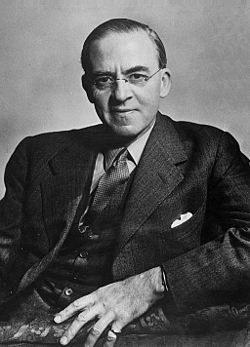Duties before Finance Act 1894
Probate duty was introduced as part of the Stamps Act 1694, in order to help finance England's involvement in the War of the League of Augsburg. [1] It originally applied to all probates of wills and letters of administration for personal estates valued greater than £20, at a fixed duty of 5 s. (one crown, or a quarter of a pound). [1] It was converted into a graduated rate in 1780 by Lord North, as a consequence of financing British activity in the American Revolutionary War. [1] Penalties for failing to file probate or administration documents were introduced in 1795, and accounts for calculating liability were first required in 1805. [2] As probate and administration were unknown in Scotland, inventory duty was introduced in 1804 to provide for similar liability there. [3] Ireland introduced probate duty separately in 1774. [4]
Legacy duty was also imposed in 1780, initially upon receipts or discharges given with respect to a legacy. As receipts were not in practice given or required, [5] revenues were insignificant until William Pitt the Younger reformed the regime to require executors to account for the property in question, as well as varying rates according to the type of collateral succession. [6] Further measures and later court decisions clarified the duty's extent.
Probate and legacy duty focused on the legacy of the estate, as opposed to its devise, thus excluding real property from taxation. [7] Neither duty captured property passing by way of settlement, which was outside the scope of probate and administration. [7] Succession duty was introduced by William Gladstone as a measure to capture more unearned wealth at the point of succession that would not otherwise be chargeable to legacy duty. In that regard, real property was included in its scope, but only on the life interest therein, as opposed to its full market value. [8] Leasehold interests were excluded from legacy duty, thus having them fall within the new duty. [9]
The administration of legacy and succession duties was integrated in 1881, [10] with the requirement that no probate or letters of administration would be granted by the court if a court officer cannot certify that an affidavit has been filed stating the estate's value and stamped where liability for duty is shown. [11] Relief from legacy and succession duties at the rate of 1% was allowed on such affidavits and inventories filed and stamped, [12] and a penalty equal to double the amount of duty due was imposed on any person failing to file them on time. [13] Account duty was also introduced, charging certain gifts and voluntary settlements to be taxed. [12]
Additional succession duties were introduced in 1888: [14]
- on any successor who is the lineal issue or lineal ancestor of the predecessor, 10 s. per centum (0.5%)
- in all other cases, £1 10 s. per centum (1.5%)
- but this additional duty does not apply to interests in leaseholds passing by will or by devolution by law, nor to property subject to account duty
Corporation duty was imposed in 1885, [15] and a temporary estate duty in 1889 (intended to last until 1896), [16] to encompass activities which the previous duties had not captured.
| Duty | Scope | Paid | Rate |
|---|---|---|---|
| Probate duty [a 1] |
|
|
But, where the gross value of the personal estate is less than £300, a flat rate duty of 30 s. is payable on such estates valued between £100 and £300, which also satisfies any liability for legacy or succession duty. |
| Legacy duty |
|
| Where any legacy, [a 3] residue or any share of residue is greater than £20: [a 4]
|
| Succession duty | Applies to every succession (conferred by disposition or operation of law) to the beneficial enjoyment of any real or personal property, or to the receipt of any portion or additional portion of the income or profits thereof, upon or in consequence of the death of any person. [29]
However:
|
The value to be included is:
|
|
| Account duty | Personal or moveable property, being:
|
|
Any stamp duty of 5 s. per £100 (i.e., 0.25%) previously paid on a deed of voluntary arrangement of property included in the account is to be returned upon production of the settlement. |
| Corporation duty | Income (less applicable expenses) earned from all real and personal property vested in a body corporate or unincorporate, other than property vested in: [42]
Property acquired by subject bodies corporate or unincorporate with funds contributed within the previous 30 years, whether voluntarily contributed or where legacy or succession duty had been paid thereon, is exempt from such duty. [42] "Body unincorporate" includes every unincorporated company, fellowship, society, and association. It also includes a trustee or trustees of a permanent trust into which property has been vested in circumstances where it was not liable to legacy or succession duty. [43] |
|
|
| Estate duty | Estates and successions greater than £10,000 in value [45] |
|
|
- ↑ Known as inventory duty in Scotland
- ↑ Or within two months after the termination of any suit respecting the right to representation, which has not been ended with four months after the death
- ↑ Including gifts of annuities or by way of annuity
- ↑ Where a legatee receives two or more distinct legacies or benefits, they shall be grouped together






